Date: 31/07/2025
Author: Laura Bea, University of Southampton
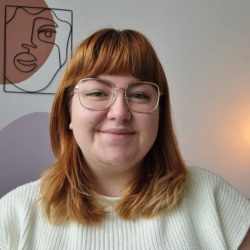
Laura Bea
Bio:
Laura is a third year PhD student with the University of Southampton. Their PhD is exploring the role of fiction as evidence within UK public policy processes.
Laura is also currently the Network Manager (part time) for the Universities Policy Engagement Network (UPEN), Co-Chair and co-creator of the Arts and Humanities Sub-Committee, and co-chair of the Equity, Diversity and Inclusion Sub Committee (UPEN). They are a former Specialist Equality, Diversity and Inclusion (EDI) Policy Officer for Public Policy, Southampton.
Before you eye-roll at the very obvious pun that has been overused a thousand times, yes, yes I know! Anyone who knows me knows I’m a huge Lord of the Rings fan. So, getting to visit New Zealand was a genuine dream come true. I’d already posted about my month in Auckland in this blog, and Wellington and the South Island did not disappoint either.
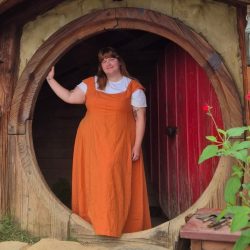
New Zealand has been a dream visit for me for many reasons. I was fascinated by its history and culture, and since working in academic-policy engagement, I became more excited to learn about the ways in which Aotearoa’s science system differs from and is similar to the UK. Particularly, I had been reading about the ways in which Mautauranga Maori, an indigenous epistemology, interacts with this system within a settler colonial context outside of the UK. I was very lucky to get funding from the SCDTP to visit and be hosted by two universities while I was there. In this blog, I outline the key lessons I learned about academic-policy engagement from my time there and how the experience has supported my professional development.
This trip was a huge stepping stone to building my personal resilience. I was alone in a new country with new customs and languages (though there was enough familiarity to settle in quickly), navigating the abrupt end of a 4.5 year relationship mid trip (a stark reminder that life still happens even during exciting PhD experiences), separated from any and all friends and family by a timezone difference of 13 hours, I very much felt the painful effects of growth in real time. I’d written in this post feelings of insecurity and imposter syndrome, which I managed to work through eventually. This was also helped by the generosity, kindness and hospitality of colleagues I was hosted by in both universities, which made it easy to get excited about learning new knowledge and sharing mine, rather than being worried about having to ‘prove’ myself.
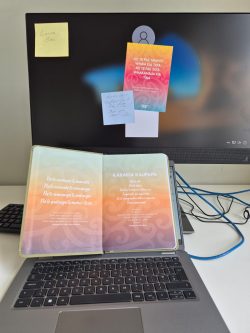
Professional Development
‘Resilience’ is probably the best word to sum up my professional and personal development from this trip. Being all the way across the world, alone, isolated by a 13 hour time difference from loved ones was a difficult experience, as it would be for anybody. My friends and family made sure to remind me they missed me, and I made sure to send them pictures of my adventures when I got a chance. Sometimes I felt lonely, and I missed my home comforts in particular. There was also the challenge of learning a new culture, the languages, the customs and the expectations, and new places to learn and navigate. New Zealand is a settler colony, meaning that it was colonised by the British and thus the language, infrastructure and customs are largely similar and familiar. However, in Auckland particularly, there was a real emphasis on reclaiming and explicitly surfacing Maori traditions, values, ethos and languages by everyone, Maori and non-Maori. I quickly learned some phrases and key histories, notably around Te Triti Waitangi/The Treaty of Waitangi.
Learning these histories and the British role within them, as well as ongoing issues, was another opportunity to confront my privileges and understand further how my choices align or misalign with the values I aim to enact as a person, professional, and academic in a different context. The way representation, intersectionality, equity, and justice are explored and experienced here differs from UK discourse, and it was important to find out, see and respect particular boundaries that came with this. I was lucky enough to be able to learn about Maori culture both inside and outside of academia, and in particular, Mautauranga Maori, which greatly interested me as an indigenous knowledge system. This was another opportunity to see in action where epistemologies and diverse knowledges interacted with decision making outside of a textbook or academic paper, or from the comforts of a classroom. This helped increase my resilience to the unknown, and to uncomfortable feelings that must be sat with in order to inspire growth.
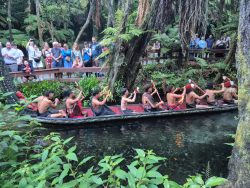
Travelling solo was a massive way in which my resilience was tested and increased, and it paid off greatly. I was lucky enough to see some incredibly beautiful and surreal sights, with a lot of them just on my doorstep. In Auckland, my way to and from the CBD (city centre) was a 10 minute ferry across a huge bay of water. Heading home meant I got to watch the sun set over the Auckland Harbour bridge, and gaze out at the changing colours of the sky.
Key activities
One of the more immediate lessons I learned at this point was the differences in how knowledge brokerage as a practice and term was used. In the UK, knowledge brokerage, or mobilisation, tends to mean professional (and sometimes academic) staff who support getting academic evidence to policymakers. This can be through a number of ways, for example, the building of key relationships, providing specialist knowledge on evidence communication, or providing resources to run events, roundtables, or training to build capability across both communities. In New Zealand, however, a knowledge broker tends to mean an academic who is engaging with policymakers with their own research evidence, or facilitating the use of wider academic evidence in policymaking, for example, as a Chief Science Advisor.
To delve deeper into this landscape and its challenges, I continued meeting colleagues across the sector, including visiting the University of Canterbury and University of Lincoln in Christchurch (South Island) to deliver policy engagement training. I also lead a workshop with the Policy Hub on key lessons from academic-policy engagement in the UK.
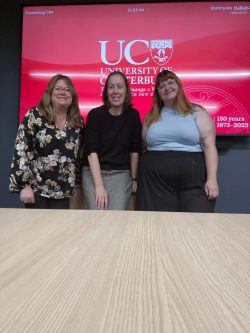
Additionally, I planned and co-hosted with Victoria University Wellington a policy roundtable on New Zealand evidence-informed policy challenges and aspirations, and co-planned a seminar on the use of fiction as knowledge (and in my case, evidence for policy). Within this roundtable, I ran an introductory storytelling exercise in order to surface assumptions and perceptions of academic-policy engagement, testing out the usefulness of stories and storytelling in bringing discourse together.
These experiences allowed me to form positive relationships with a number of colleagues in Aotearoa, many of whom I am continuing to discuss further collaboration with. Overall, this trip had a hugely positive impact on both my confidence as a researcher and my confidence as a person. I am incredibly grateful to the SCDTP for providing this opportunity.
Building on this opportunity, I am collaborating with my hosts and colleagues I had the pleasure to meet while there to build future opportunities for research collaboration, international knowledge exchange, and further professionalisation of knowledge brokerage within New Zealand. At the moment, this looks like discussions of what a programme of activity may look like, looking out for possible postdoctoral opportunities for after my PhD, and creating opportunities to bring colleagues together for knowledge exchange and discussion.